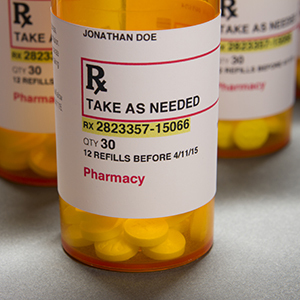Proxsys Rx, which develops and administers pharmacy-centric technology and services, has designed a software program to help qualifying hospitals stay compliant with the federal 340B program to distribute low-cost pharmaceuticals to underserved and indigent populations.
Administered by the Office of Pharmacy Affairs (OPA) through the Health Resources and Services Administration (HRSA), the 340B program requires drug manufacturers to provide discounted drugs to qualified hospitals, which in turn can offer them at lower cost to patients in need.
HRSA looks at several criteria to determine if an organization qualifies for the program, including the percentage of indigent patients and the facility's nonprofit status. Requirements for the 340B program are continually updated, so participating organizations must stay abreast of changes to remain complaint or else face an audit that might entail stiff penalties and disqualification. That's where the Proxsys Rx software comes in.
“The 340B program is highly regulated,” Proxsys Rx CEO George B. Salem told American Pharmacy News. “Some of the hospitals in the program have been trying to do it themselves, but that's dangerous for them, because it's very easy for them to unknowingly be out of compliance with the requirements, which are constantly being reviewed and adjusted. You really have to stay on top of that. This program takes a lot of focus, and many small hospitals just don't have the systems in house to do it.”
Proxsys Rx created its 340B administration program to assist hospitals in fulfilling their mission in a manner that is compliant with the requirements set by HRSA. The full-service system, which includes installation, counseling and ongoing training, provides a qualified patient database, claims processing capabilities, coordination with local pharmacies to dispense medications, inventory management capabilities, HRSA-required reporting capabilities and more.
“We've got very stringent systems, and we're constantly in touch with the HRSA people,” Salem said. “Whenever new guidelines come out, we immediately build them into our program so that we can give the hospitals assurance that they're going to remain in compliance.”
Proxsys Rx can also offer solutions to hospitals that have not been using their software and have found themselves facing an audit.
“We have had the experience where a hospital is being audited before we get there, and we are being brought in as a solution,” Salem said. “We'll help these new clients with guidance throughout the audit, and we have a pre-existing relationship with HRSA that's of great benefit.”
In addition to 340B software, Proxsys Rx offers other pharmacy-centric programs, including ownership and management of outpatient pharmacies within hospitals and administration of medications to discharged patients with follow-up telephone monitoring. The company also contracts with independent pharmacies so that they can participate in the program. In cases where Proxsys Rx operates a hospital's pharmacy, the company also handles all 340B management and compliance.
Salem notes that the hospitals that qualify for 340B are usually mission-based with large populations of low-income and underserved patients.
“Proxsys Rx helps our client facilities better serve the people in need,” Salem said. “Our programs provide the technology, expertise and processes that enable facilities to participate and comply with the complex guidelines that govern 340B.”









 Alerts Sign-up
Alerts Sign-up